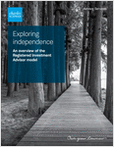What You Need to Know
- One lawyer, Heather Marx, filed the four suits.
- Estate reps say the death benefit recipients had no insurable interest in the lives of the insureds.
- The estate reps contend that estates can sue for the benefits to owners of stranger-originated life insurance policies.
Representatives for four estates are suing to keep U.S. Bank and three trusts from collecting about $26 million in life insurance policy death benefits.
The estate representatives contend that, in 2006 and 2007, investors used “stranger-originated life insurance” transactions to buy five policies insuring the lives of the estate decedents.
The STOLI transactions were illegal, U.S. Bank and the trusts have no right to collect the policy death benefits, and the death benefits should go to the estates, the estate representatives say.
Heather Marx of Cozen O’Connor filed the suits in the U.S. District Court for the District of Minnesota.
Representatives for the plaintiffs, U.S. Bank and the trusts did not respond to requests for comments about the cases.
What it means: If your clients have let investors buy policies insuring their lives, the clients’ families may try to sue for the policy death benefits.
Clients who have invested in life settlement arrangements should ask their investment and legal advisors about the implications of the STOLI litigation.
Life settlements and STOLI: Traditionally, regulators have prohibited life insurance buyers from taking out policies on strangers’ lives, to avoid giving the policy owners an incentive to hope for the strangers’ deaths.
For the past two decades, regulators have let investors buy in-force policies from the original insureds but have generally opposed the creation of policies by strangers with no insurable interest in the lives of the insureds.
Life insurers, the families of the people insured by investor-owned policies, life settlement companies and other players have clashed in court over the boundaries between STOLI and more broadly accepted forms of investor-owned life insurance.
In 2015, for example, the 7th U.S. Circuit Court of Appeals ruled in favor of a life insurer and against trusts that had invested in life insurance policies written by the insurer.
In 2019, the New Jersey Supreme Court ruled that STOLI policies are against public policy and void from the beginning.












 Copyright © 2024 ALM Global, LLC. All Rights Reserved.
Copyright © 2024 ALM Global, LLC. All Rights Reserved.